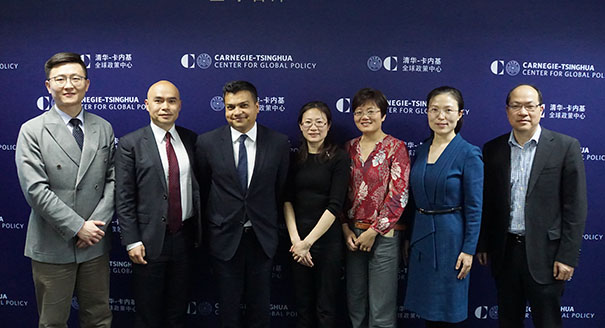Registration
You will receive an email confirming your registration.
While the Trump administration has proposed to slash foreign aid by more than one-third, China is increasingly interacting with, and providing aid to, developing countries under the umbrella of South-South cooperation. The participating nations and their policies represent a counterweight to the development aid models that have for long been promoted by the Global North. The establishment of China’s Development Cooperation Agency is also seen as a well-received advancement in South-South cooperation.
International discourse is currently focused on the rapidly changing dynamics of aid, the instruments used to deliver it, and its effectiveness as measured by concrete results. How do Chinese aid models fit into the overarching framework of the Belt and Road Initiative? How will the new Development Cooperation Agency affect the distribution of Chinese assistance? Finally, how and to what extent is China prioritizing trilateral forms of cooperation with Western donors and multilateral agencies?
Tang Xiaoyang and Dan Banik moderated a two-part panel discussion with Chinese and international scholars on the future of Chinese aid models and implications for developing countries and the international aid landscape at large.
This event was co-hosted by the Carnegie–Tsinghua Center for Global Policy and the Centre for Development and the Environment at the University of Oslo.
This event was off the record.
DISCUSSION HIGHLIGHTS
- Convergence of Global Foreign Aid Models: Panelists discussed the gradual convergence of the once-quite distinct Chinese and Western foreign aid models. One discussant said that a growing dialogue in the West regarding the mutual benefits for donor and recipient countries emulates China’s policy of recognizing both its national interests and those of the countries to which it gives aid. Meanwhile, China is learning from American and European best practices in adopting a more systematic, data-driven approach. A panelist pointed to the increasing number of trilateral cooperation agreements as evidence of China and Western countries working together on development projects.
- Historical Trends in Chinese Aid: The panelists discussed their research on the history of Chinese international aid and noted that the establishment of the International Development Cooperation Agency represents a major policy change. China has shifted from assisting allies who shared its ideology in the 1960s and early 1970s to focusing on infrastructure development projects regardless of the politics of recipient countries. China’s economic success and national development experiences as an aid recipient have influenced this transition.
- Implications of China's New Aid Agency: While specific details regarding the International Development Cooperation Agency have not yet been announced, panelists expect that it will institutionalize the Chinese model of foreign aid. Panelists noted that doing so will enhance cooperation between different government agencies and address the concerns of recipient countries. At a time of increasing business and aid ties between China and the developing world, the new agency will be instrumental in supporting the operations of Chinese embassies and promoting South-South cooperation.
- Foreign Aid and the Belt and Road Initiative: Since its announcement in 2013, the BRI has become the cornerstone of China’s foreign policy. Panelists said that China’s approach to aid has begun to evolve in ways that reflect this new reality. Some of the responsibilities of the new aid agency will be in support of the BRI, with a special focus on sectors beyond the reach of commercial loans and without immediate financial returns. To this end, a discussant highlighted China’s increasing interest in in supporting social infrastructure abroad.
Tang Xiaoyang
Tang Xiaoyang is a resident scholar and deputy-director of the Carnegie–Tsinghua Center, as well as an associate professor in the International Relations Department at Tsinghua University.
Tang Lixia
Tang Lixia is a professor of development studies at the College of Humanities and Development Studies at China Agriculture University.
Dan Banik
Dan Banik is a professor of political science and research director at the University of Oslo’s Centre for Development and Environment (SUM), as well as a visiting professor at China Agricultural University in Beijing.
Zhang Haisen
Zhang Haisen is the director of the Center for International Development and Innovation Studies (CIDIS) at the University of International Business and Economics (UIBE).
Xu Jiajun
Xu Jiajun is assistant professor and the executive deputy dean of the Institute for New Structural Economics at Peking University.
Mao Xiaojing
Mao Xiaojing is deputy director and senior research fellow at the Institute of International Development Cooperation at the Chinese Academy of International Trade and Economic Cooperation, which is attached to China’s Ministry of Commerce.
Cheng Cheng
Cheng Cheng is an associate research fellow at Renmin University’s Chongyang Institute for Financial Studies.
